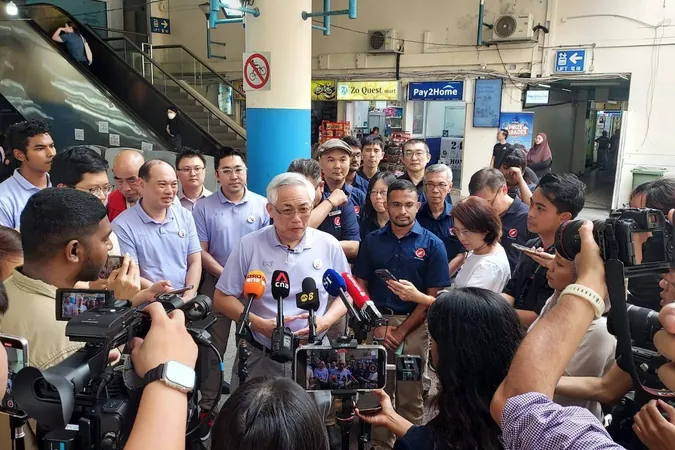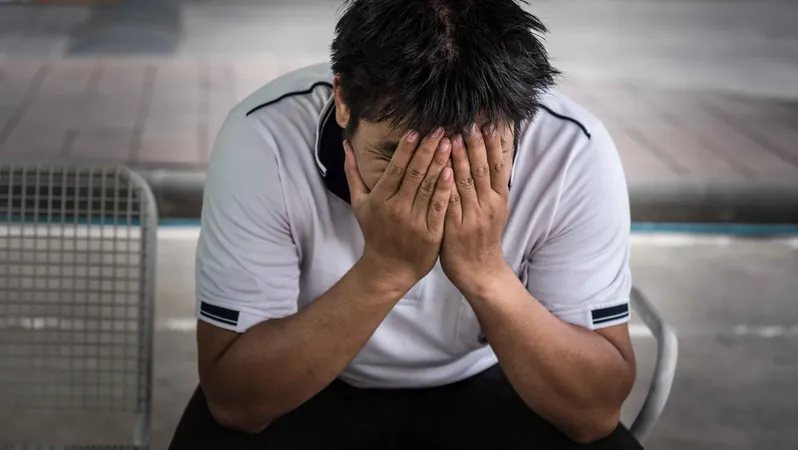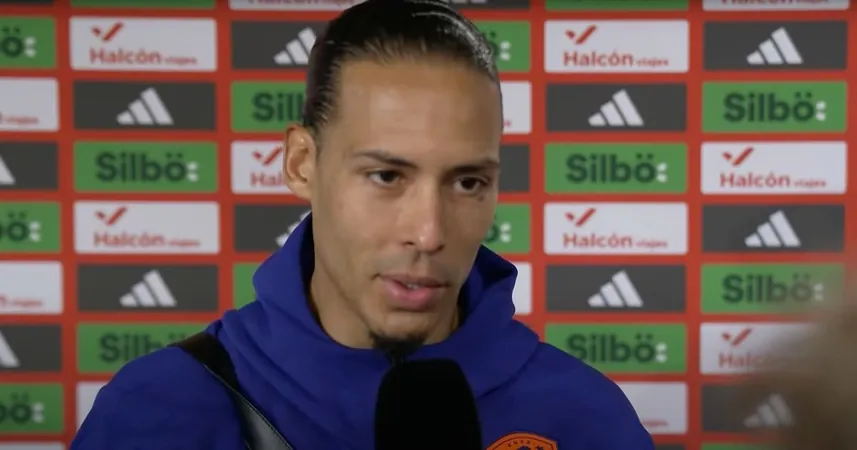
What Are Goh Meng Seng's True Objectives in His Campaign Against the LGBTQ Community?
2025-03-25
Author: Rajesh
The Political Landscape in Singapore
The political landscape in Singapore is heating up as the countdown to the 2025 General Elections begins, with early indications of campaign strategies aimed at polarizing the population along ideological lines. One standout figure in this early political skirmish is Goh Meng Seng, the leader of the People’s Power Party (PPP), who has taken a hard stance against what he perceives as a looming 'LGBTQ agenda' by announcing his intention to contest the Nee Soon Group Representation Constituency (GRC).
Controversy and Reactions
The controversy was ignited on March 3rd when Goh asserted that his party would position itself against the LGBTQ movement. This announcement coincided with the speculation surrounding Deryne Sim, an LGBTQ activist and lawyer, who was seen canvassing in Nee Soon alongside K Shanmugam, a member of the ruling People’s Action Party (PAP). While there has been no official confirmation regarding Sim’s candidacy for the PAP, Goh's reaction indicates a belief that this potential association poses a threat to traditional familial values.
Insight from Academia
During a recent Facebook Live session, Goh confidently declared that he believed his mission was accomplished, claiming that his intervention would deter the PAP from recruiting Sim. This assertion, however, raises profound questions about Goh's true intentions and the future political climate of Singapore. Is he genuinely advocating for a Singapore that celebrates diversity and inclusivity, or is he fostering a climate of division based on socio-political ideologies?
Dr. Elvin Ong, an Assistant Professor at the National University of Singapore, highlights the irony in Goh’s focus on a so-called 'LGBTQ agenda.' He recalls how, years ago, the PAP interrogated the Singapore Democratic Party (SDP) about their stance on LGBTQ issues, now finding themselves in a position where an opposition party is capitalizing on the potential candidacy of an LGBTQ activist.
Political Manipulation of LGBTQ Issues
This situation illustrates a troubling pattern where political figures approach LGBTQ rights not as a matter of human rights, but rather as a tool for political gain. While Goh’s rhetoric aims to frame LGBTQ rights as a threat to societal norms, the reality suggests that such divisive stances may overlook the more pressing issues facing Singaporeans today—such as housing affordability and job security.
Narrow Views on Family Values
Indeed, Goh's vocal disapproval of LGBTQ lifestyles suggests a narrow view of what constitutes family values, focusing predominantly on traditional heterosexual family structures. He carries forth his argument under the guise of preserving these 'pro-family' values, yet this narrative fails to address the root causes behind declining birth rates and shifts in social priorities, such as the rising cost of living and career-focused lifestyles.
A Complex Issue
A critical examination reveals that the issues hindering Singaporeans from starting families are more complex and societal in nature, rather than being rooted in the acceptance of diverse sexual orientations. In misdirecting blame towards LGBTQ communities, Goh risks alienating a significant portion of the population. Dr. Felix Tan, a political expert from Nanyang Technological University, notes that while Goh’s comments may resonate with specific conservative voters, they also raise questions about inclusivity in the political sphere.
Looking Ahead
As voters prepare for the impending elections, it becomes imperative to reflect on the kind of political narrative we are willing to endorse. Goh Meng Seng's focus on stirring division raises essential conversations about the Singaporean identity we aspire to cultivate—a nation advocating for inclusivity rather than exclusion.
As the political atmosphere continues to evolve, and with the PAP potentially still considering Sim for their candidate lineup, the true impact of Goh's campaign remains to be seen. What is clear, however, is that political strategies centered on vilifying specific communities cannot form the foundation for a cohesive future.
A Call for Inclusivity
Ultimately, Singapore’s evolution hinges on whether we embrace diverse narratives that contribute to a more inclusive society or retreat into divisive politics that risk fracturing our social fabric. As citizens, the challenge lies in deciding whether we want leaders fostering division or those committed to a united vision for all Singaporeans.


 Brasil (PT)
Brasil (PT)
 Canada (EN)
Canada (EN)
 Chile (ES)
Chile (ES)
 Česko (CS)
Česko (CS)
 대한민국 (KO)
대한민국 (KO)
 España (ES)
España (ES)
 France (FR)
France (FR)
 Hong Kong (EN)
Hong Kong (EN)
 Italia (IT)
Italia (IT)
 日本 (JA)
日本 (JA)
 Magyarország (HU)
Magyarország (HU)
 Norge (NO)
Norge (NO)
 Polska (PL)
Polska (PL)
 Schweiz (DE)
Schweiz (DE)
 Singapore (EN)
Singapore (EN)
 Sverige (SV)
Sverige (SV)
 Suomi (FI)
Suomi (FI)
 Türkiye (TR)
Türkiye (TR)
 الإمارات العربية المتحدة (AR)
الإمارات العربية المتحدة (AR)